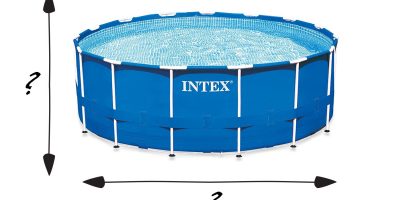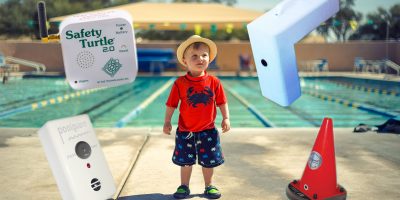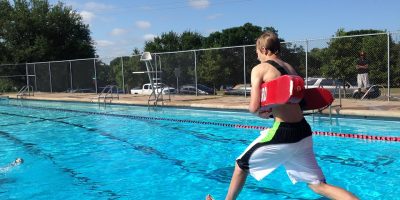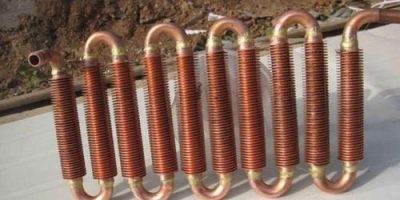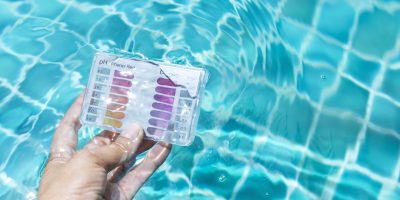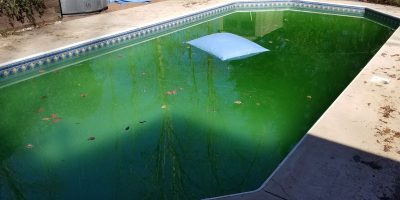
Swimming pools are a great source of entertainment, family fun, and relaxation. However, they can also be the source of quite a few headaches. Pools do require some important upkeep. No matter what style of pool you own, it’s important to take care of it to ensure clean and clear water, and to protect the structure itself.
Some areas of pool maintenance are more difficult than others, and there are several key mistakes new and old pool owners make that can damage or completely destroy your pool altogether.
Below are 3 of the most common mistakes made by swimming pool owners.
1. Draining Your Pool
Popular Reasons Why Pools Are Drained
- The pool has been neglected and is filled with algae and debris.
- The owner may wish to repair damage or suspected leaks in the pool interior.
- A local pool store may have recommended you drain the pool if your water chemistry has been consistently unbalanced or difficult to maintain.(This is commonly done by large chain stores with inexperienced staff.)
Why a Pool Should NOT be Drained
Unless you own a soft-sided vinyl pool (like an Intex-brand pool), you should NOT drain your pool under almost any circumstance. Draining a metal walled above ground pool, or any type of in ground pool is extremely dangerous for the structure and can cause large amounts of damage.
Dangers: Above-Ground Pools
A permanent above-ground pool consists of a steel wall structure, and a vinyl liner that holds the water. The vinyl liner on an above ground pool is a semi-flexible material that stretches into place when it is initially installed. When the pool is emptied however, that vinyl liner can shrink in an extremely short amount of time. Depending on the outside temperature and the vinyl material itself, a vinyl liner on an above ground pool can shrink in less than 24 hours.
When you return to refill the pool there is a high chance the liner will tear in a number of places due to the shrinking that has occurred.
Dangers: In-Ground Pools
In-ground pools are at an even greater risk to damage when drained despite their weight. Whether you live in a geographical area with a high water table, or there has recently been extremely wet weather, there’s a chance that there is substantial amounts of moisture under your pool structure. This moisture can cause an empty pool to heave or float, creating cracks and fractures or even rupturing plumbing. Some in ground pools will have hydrostatic plugs installed in the main drains allowing for the release of this pressure, but if you’re unsure whether or not your pool has these plugs, or feel uncomfortable with removing them, I would advise not to ever drain your pool below a few feet.
In the video below you can see some of the worse outcomes of draining in-ground pools.
2. Neglecting Your Filter Media
What is Filter Media
Filter media is the material that is housed by your filter system and is used to remove debris from your water. Water is pushed through this material by your pool pump, and it captures debris of varying sizes. This debris can then be cleaned in a number of ways we’ll discuss below. There are several forms of filter media, the most popular are cartridges, silica sand, and Diatomaceous Earth.
Knowing when it’s time to replace your filter media will make your pool chemical maintenance less expensive, and keep your pool crystal clear.
Cartridge Filters
Cartridge filters can be expensive, especially for large, 4 cartridge systems. Pool owners may neglect replacing their cartridges to save money, but this generally comes back to bite you in increased maintenance costs.
When washing your cartridges, if the paper material of the cartridge is permanently discolored, or appears to be deteriorating it’s time to replace the cartridge.
Sand Filters
The sand in a silica sand filter should generally be replaced every 3-5 years. It’s not uncommon for pool owners to neglect replacing their sand for 10+ and wonder why their pool is consistently not clear and harder to maintain. Sand systems can be “revitalized” yearly with a diluted wash of muriatic acid, but after a certain number of years it’s vital to replace the sand to maintain the overall filtration quality.
Diatomaceous Earth Filters (“DE” Filters)
DE filters require the most amount of maintenance of the three systems discussed, but they are overall the most effective. Not only is it important to maintain the correct amount of DE in the tank, it’s also important to keep an eye on the quality of your DE grids. DE grids consist of a plastic frame covered in a mesh fabric. These grids are coated in DE powder, which acts as a screen for dirt and debris.
The longevity of your grids depends on the amount of debris in your pool, as well as maintaining the proper amount of DE in the system. Twice a year inspect these grids with your hands. If you feel that the inner plastic framework is cracked or broken in any areas, then you should replace that grid. If you proactively replace grids as soon as signs of damage occur, you can prolong the use of the other grids in the system.
3. Not Preparing for Freezing Temperatures
Pool owners living in climates that experience freezing temperatures should always be aware of how to prepare their pool for chilly weather. Often pool owners will allow their filter system to sit idle during freezing weather. This is extremely dangerous for the pool equipment. Even short exposure to freezing weather can bust pressure gauges, hoses, and fittings. Prolonged exposure can split filter tanks open and damage buried plumbing.
Thankfully, of all commonly made pool care mistakes this has the simplest solutions. Simply make sure your pool equipment is always running during freezing weather, as running water will not freeze. Some pools are installed with freeze guard mechanisms at the equipment pad that engage the pump when temperatures drop below freezing. This takes out the chore of having to remember the pool equipment during cold weather.
If you’re away from your pool during freezing weather and unable to ensure the pool can be ran, see the video below discussing how to properly winterize your pool equipment:
Conclusion
Your pool is an investment and without the right care it can be costly to maintain and repair! Steering clear of these common mistakes will make your pool easier to own, and will eliminate unnecessary headaches. You’ll have less work to do, and your overall maintenance costs should go down as well!




